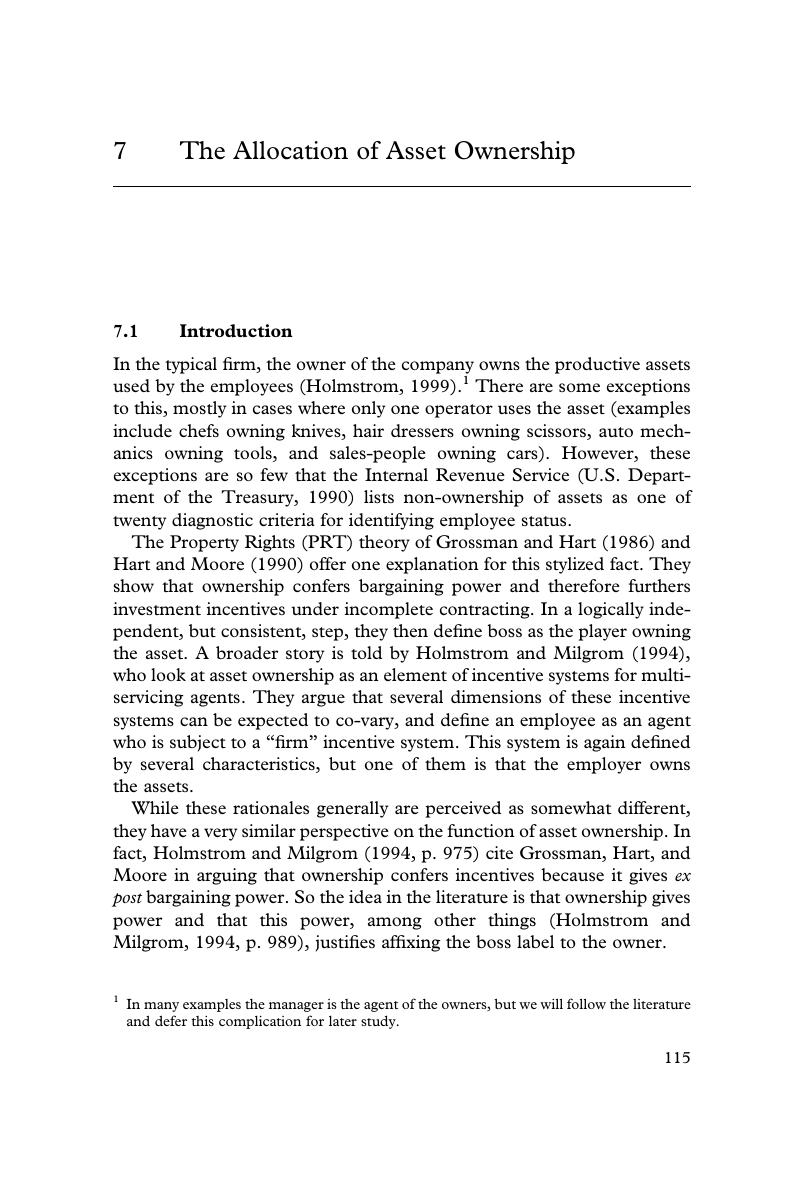Book contents
- Adaptation, Specialization, and the Theory of the Firm
- Adaptation, Specialization, and the Theory of the Firm
- Copyright page
- Dedication
- Contents
- Figures
- Tables
- Preface
- Part I Agenda
- Part II The Main Argument
- Part III Implications
- 7 The Allocation of Asset Ownership
- 8 Communication within and between Firms
- 9 The Power of Incentives within and between Firms
- 10 Decision-Making in Large Organizations
- Part IV Empirical Tests
- Part V Foundations
- Part VI Postscript
- Index
- References
7 - The Allocation of Asset Ownership
from Part III - Implications
Published online by Cambridge University Press: 03 November 2016
- Adaptation, Specialization, and the Theory of the Firm
- Adaptation, Specialization, and the Theory of the Firm
- Copyright page
- Dedication
- Contents
- Figures
- Tables
- Preface
- Part I Agenda
- Part II The Main Argument
- Part III Implications
- 7 The Allocation of Asset Ownership
- 8 Communication within and between Firms
- 9 The Power of Incentives within and between Firms
- 10 Decision-Making in Large Organizations
- Part IV Empirical Tests
- Part V Foundations
- Part VI Postscript
- Index
- References
Summary

Information
- Type
- Chapter
- Information
- Adaptation, Specialization, and the Theory of the FirmFoundations of the Resource-Based View, pp. 115 - 127Publisher: Cambridge University PressPrint publication year: 2016
